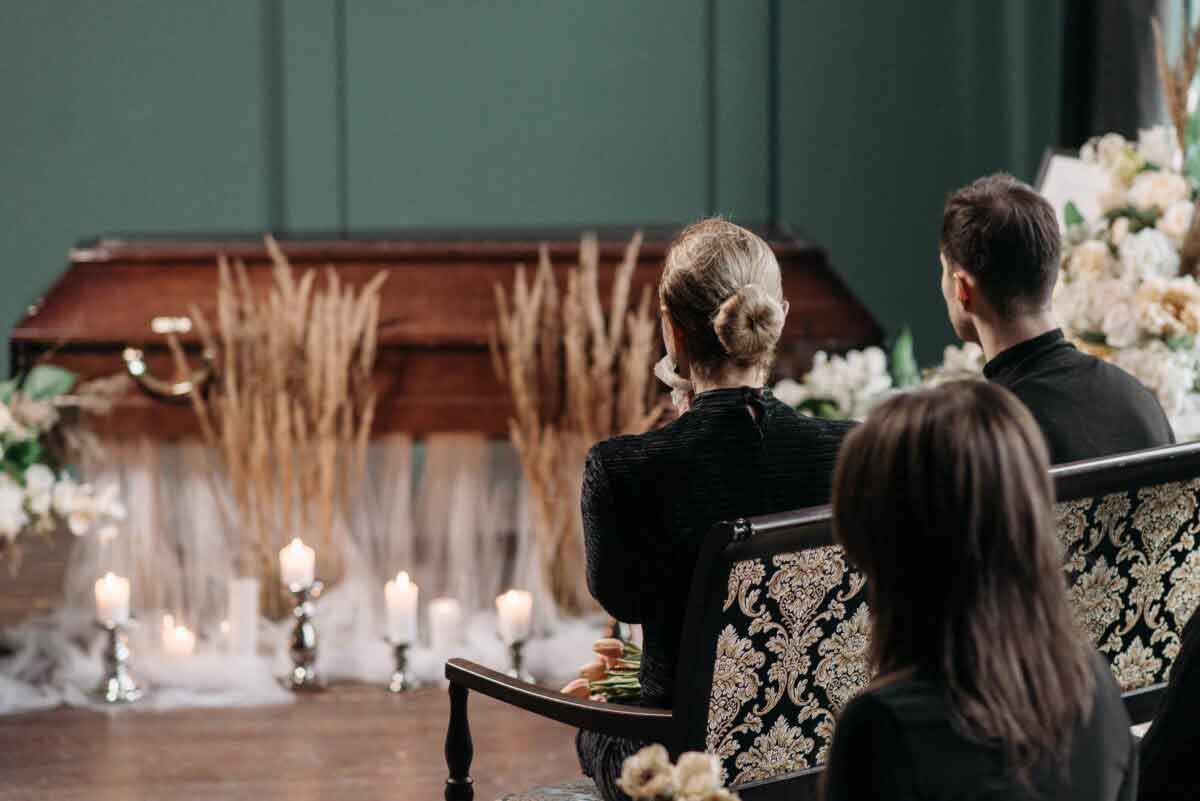Elderlaw Legal Services, a division of Foulsham & Geddes Pty Ltd, acted for the plaintiff in Supreme Court proceedings last Christmas 2020 regarding funeral arrangements.
After three weeks in a morgue, Mrs Betty Batson’s body was finally laid to rest following two days of submissions and cross-examination of several witnesses with orders made by the Court on the third day.
The case caught the attention of the media and was subject to discussion amongst solicitors in NSW who work in elder law and succession matters.
Decision on the funeral: McCredie v Batson [2020] NSWSC 1913
The case arose from circumstances involving a disagreement between the executrices of the estate of Mrs Batson, two of her daughters, each of whom had different accounts of their mother’s wishes for the arrangements preceding the cremation of her body.
The plaintiff took the view her mother wanted a small funeral conducted by White Lady Funerals so that family members could pay their respects. The defendant believed her mother wished to be simply cremated without any ceremony.
In formulating his judgement, his Honour, Justice Slattery, referred to authority[1] that:
- a named executor who is ready, willing and able to do so has the right to arrange for the burial of the deceased body;
- apart from any applicable statute dealing with the disposal of parts of the body, a deceased person has no right to dictate what will happen to his or her body;
- a person with the privilege of choosing how to bury (or cremate) a body is expected to consult with other stakeholders about the process (including any associated funeral) but is not legally bound to do so;
- where two or more persons have an equally ranking privilege to arrange the burial, the practicalities of burial without unreasonable delay will decide the issue;
- cremation is nowadays equivalent to burial; and
- the holder of a right of burial cannot use his or her right so as to exclude friends and relatives of the deceased expressing their affection for the deceased in a reasonable and appropriate manner, such as by placing flowers on a grave. It was further noted the Court may take into consideration the deceased’s wishes on the subject[2]
His Honour acknowledged the Court would ordinarily remove both executrices and appoint a suitable executor in their place, in circumstances where they could not agree. However, given the urgency of time, the Court, instead, chose to assume the role of making the necessary decisions in the funeral arrangements by first ascertaining the deceased’s wishes. This proved difficult as the evidence regarding the deceased’s wishes were conflicting. Nevertheless, His Honour made a finding that, ultimately, the deceased wished for a “modest but dignified family gathering constructed around her cremation”.
His Honour went on to note that the Court was compelled to step in and take charge of the details of the cremation arrangements, more so than it would ordinarily, in an effort to minimise further family conflict. The Court ordered White Lady Funerals to conduct the ceremony.
The funeral and cremation took place on Christmas Eve 2020. The plaintiff and one of her brothers, along with the plaintiff’s husband, her sons and grandchildren, were the only family who attended.
McCredie v Batson (No. 2) [2021] NSWSC 78
The matter was brought back before the Court for a determination on costs in February 2021.
It was observed that the dispute could not have been resolved without the Court’s intervention and carefully analysing the evidence put forward by the deceased’s children.
Several arguments were submitted by the parties but there was consensus the dispute arose from the conduct and omissions of the deceased herself and the way in which she expressed her wishes that led the way to dispute and litigation.
The Court found there were reasonable grounds for the litigation, for the bona fide purpose of giving effect to the wishes of the deceased.
His Honour refused to make an order for costs in favour of either the plaintiff or the defendant but noted, inter alia, “the overall outcome of the case was more like that for which the plaintiff ultimately contended”.
An order was made for the legal costs, incurred together by the parties, to be paid out of Mrs Batson’s estate and borne by all the beneficiaries, Mrs Batson’s children, save for one of her sons who did not participate in the proceedings.
[1] Young Jin Smith v Tamworth City Council (1997) 41 NSWLR 680; (1997) 7 BPR15,239
[2] Frith v Schubert [2010] QSC444 at [57], State of South Australia v Smith (2014) 119 SASR 247; [2014] SASC 64 at [61]; Williams v Williams (1882) 20 Ch D 659

